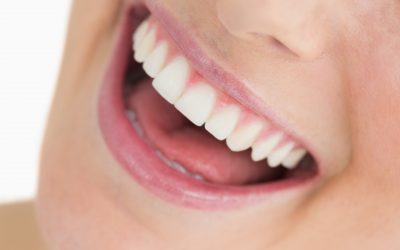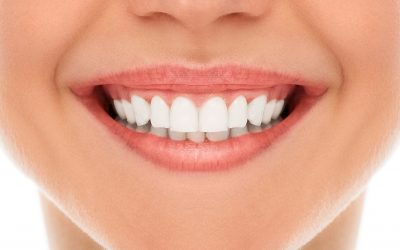Cracked or broken teeth can be extremely distressful experiences, yet knowing how to manage them effectively and promptly is crucial in mitigating discomfort and preventing further damage. Whether you’ve encountered something hard while biting into something hard or experienced an accident with tooth decay, there are steps you can take immediately and effectively to address the situation, relieve discomfort, and prevent further damage.
Though cracked or broken, every tooth holds the power to smile again. Treat them with care, restore their grace, and let resilience be their tale.
How Broken Teeth are Fixed: Ways to Deal With It
1. Remain Calm
The first and foremost step when dealing with cracked or fixed broken teeth is remaining calm. Although this experience can be alarming, panicking won’t help the situation. Take a deep breath, assess any damage done, and remember there are solutions available that can restore and alleviate pain from damaged teeth.
2. Rinse Your Mouth
After assessing the damage, rinse your mouth with warm water to help clean out debris or bacteria that has entered through cracks or breaks in the tooth surface. Be gentle; hot or cold temperatures can worsen sensitivity issues further in crack teeth repair.
3. Keep any tooth fragments for future reference
If a piece of your tooth has broken off, locate and save it as soon as possible. A dentist may be able to reattach it, preserving its natural appearance and strength. Store your fragment in a clean container with some milk or saliva to keep it moist until you can visit a dentist.
4. Control Pain and Swelling
Pain and swelling management is paramount when treating cracked or broken teeth. To ease the intense discomfort while you await dental treatment, consider using over-the-counter pain relievers such as ibuprofen as directed to reduce inflammation and pain. Apply cold compresses for 15-20 minute intervals directly onto the affected areas on your cheek or lip to reduce swelling while providing soothing numbing relief.
5. Avoid Certain Foods
While waiting for professional dental treatment for fixing cracked teeth, it may be beneficial to avoid eating certain foods that could make matters worse. Avoid extremely hot or cold food items as temperature extremes can trigger pain and sensitivity in teeth, while crunchy, hard snacks could further damage them.
6. Apply Temporary Fillings with Dental Wax
If your crooked or broken tooth has jagged edges, over-the-counter dental wax or filling material can help smooth them out and protect the surrounding teeth from being cut or damaged. This broken teeth repair will also prevent other people from accidentally being cut during cleanings of their mouth.
7. Seek Prompt Dental Care
When a cracked or broken tooth occurs, seeking prompt dental care is paramount. Contacting your dentist quickly to schedule an appointment and communicating your symptoms can help speed up assessment and recommend suitable solutions – from dental bonding or fillings to root canal therapy or extraction procedures. Acting quickly ensures pain-free care and safeguards long-term oral health benefits
8. Dental Bonding or Filling Services
Your dentist may recommend dental bonding or filling for minor cracks and chips in your tooth enamel, depending on their severity. Dental bonding involves applying tooth-coloured resin directly onto damaged areas before shaping and polishing to match the natural enamel colour. Fillings are commonly used for cavities but can also repair chips or cracks in smaller teeth.
9. Dental Crowns
For more severe cracks or breaks, dental crowns may be necessary. A crown is a custom-made cap that covers an entire tooth for strength and protection; it can restore function and improve appearance. Connect with the professional and opt for dental crowns to avoid further breakage of teeth.
10. Root Canal Treatment
Root canal therapy may be required if the damage extends into a tooth’s pulp (the innermost area containing nerves and blood vessels). This process entails extracting damaged pulp, cleaning the area thoroughly, and sealing it off with a crown seal to save severely damaged teeth from extraction.
11. Tooth Extraction
A crack or broken teeth may become too damaged for repair, and extraction may become necessary. Your dentist will discuss replacement options such as dental implants, bridges or dentures to fill any resulting void left by missing teeth.
12. Preventative Measures
Once your cracked or broken tooth has been properly treated, taking preventive steps is crucial to avoid similar problems. Practice good oral hygiene to Repair cracked tooth without crown by brushing twice daily and flossing daily – while attending routine dental check-ups and cleanings as part of ongoing dental check-ups and maintenance visits.
Conclusion
As soon as your teeth become cracked or broken, professional dental care must be sought immediately to restore damaged teeth’ function and aesthetics. Remaining calm while managing pain is vital to safeguarding oral health, whether that means dental bonding, fillings, crowns or more extensive procedures like crown replacement. Early intervention not only alleviates discomfort but can prevent complications, ensuring you maintain an aesthetically pleasing and healthy smile for years. Therefore, we must prioritize our oral wellbeing, taking immediate steps when facing dental issues to maintain wellbeing.




